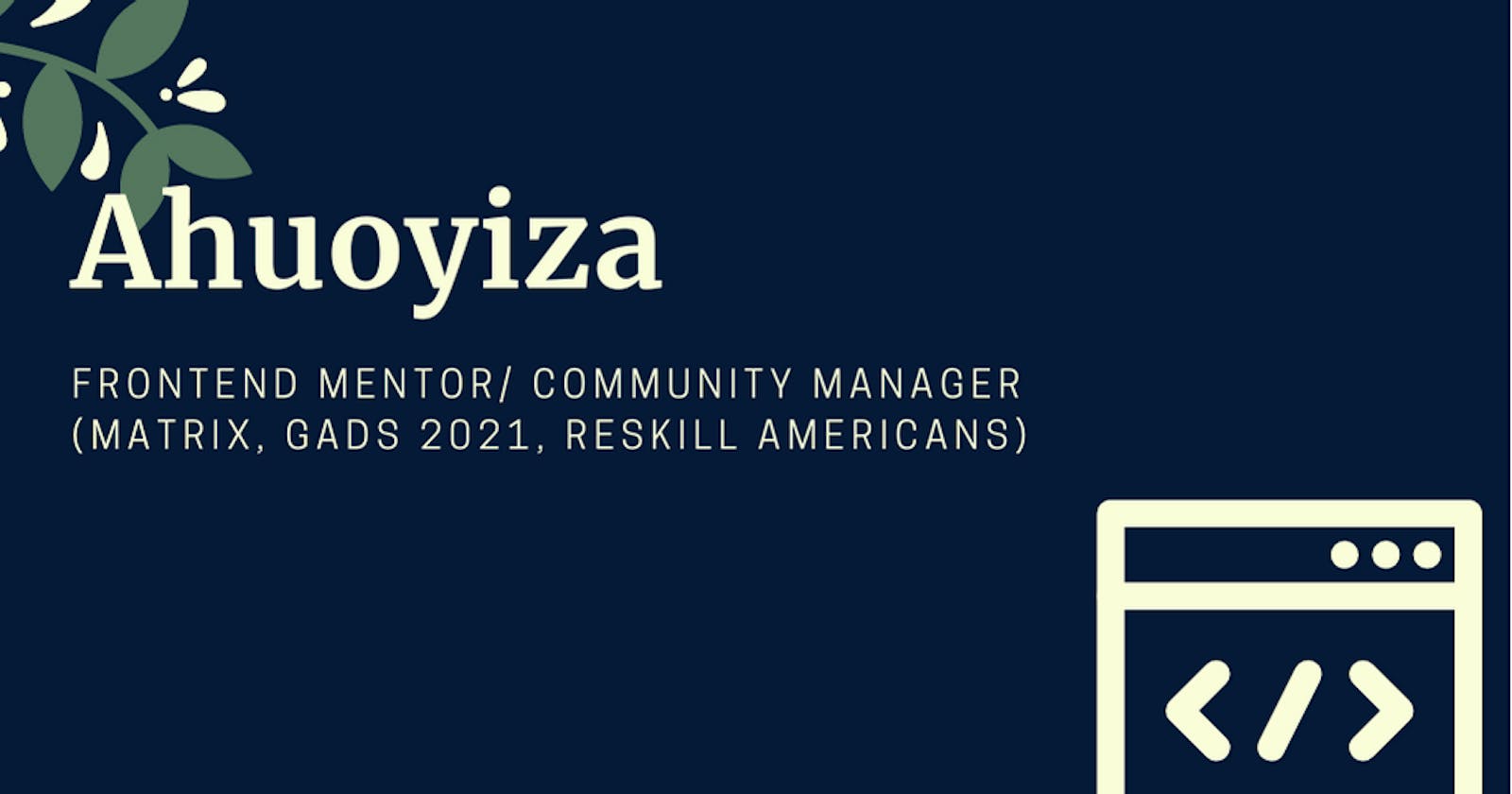Matrix
Matrix started from a tweet I put out after one of my coding sessions with Femcode Africa students.

I discovered so many people wanted to learn, and a greater percentage were learning but needed guidance in their new field (tech). With the help of other community-focused devs, we ran the first cohort of the mentorship program, codename: Matrix.
Page focus:
The program impacted me and the mentees in significant ways, but the focus of this 'page' is on highlighting areas that made it a success and providing some tips to those willing to mentor in their field.
It is important to note that the pointers provided in this article stem from my personal experience and are in no way an "expert-one-way-solve-it-all-mentoring-article' However, it will be a useful place to draw ideas or motivation to mentor someone(or a group).
Pointers:
Defining the goal
The first thing I did was ask the important question "Why?" why do I want to mentor? , why will the mentees want to be mentored?
When defining the program goal, don't only focus on your goals as a mentor, get insights from the possible mentees on what they want to achieve from the relationship as well. Have a brainstorming session with the team and define the one goal that represents both parties.
This will be the reference point for everything else in the program, like duration, resources, etc. The goal should be clear, concise, and easy for a child to understand. Everyone on the team should know what everyone is trying to achieve.
Program Planning
There are several tools available online (miro, jam board) that aid remote team collaborative planning. So resist the urge to plan alone (esp if you are the community leader). If you're a lone wolf mentor, give access to industry experts in your circle to preview your plans and give feedback. Allocate time for this so it doesn't take forever.
The plan shouldn't be a wish list, I ensured that items in the plan match a specific timeline and measurable metric.
The program plan isn't limited to technical aspects alone; all aspects of the program should be represented.
Resources
The resources needed to facilitate the mentorship program should be highlighted early on and budgeting should take place (if the resources will have financial implications)
I made a document with a list of resources that will be needed for the program, their priority level, cost, and alternatives. This is useful for an open-budget program and a tight-budget one as well because it will ensure that resources aren't misused and quality alternatives are used if it will push beyond the program budget.
Delegation and Regulation
Delegate roles to community members (who are part of the planning team and subsequently to some mentees). Sharing the responsibilities will foster growth and community bonding.
Ensure roles match the individuals' strengths and give some the opportunity to learn through some roles as assistants.
Community regulation is very vital, it has to be a safe place and accommodating of people from all backgrounds. It will be in everyone's best interest to have the rules listed out and community regulators that enforce those rules.
Milestones & Progress Tracker
Break down the goal into achievable milestones, I included this in the program planning board under the 'milestones category' with proposed timelines. Each milestone progressively moves the mentors and mentees towards achieving the goal.
Progress trackers are metrics that measure the progress of mentees against milestones and will indicate areas a specific mentee will need assistance with.
Reviews
Working with humans requires a dynamic workflow, not a static one; to cater to everyone, the system has to be flexible. This is why reviews are important; depending on the available resources, reviews can be analyzed weekly and necessary changes are made to the program structure to accommodate the shifts, turns, and new events.

